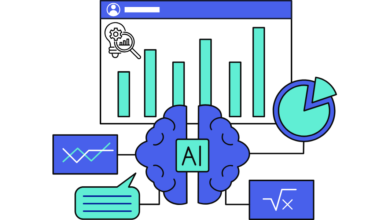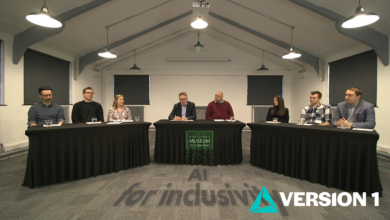In order to prepare for the future, travel brands have to shift their mindset away from solely understanding the latest travel trends and planning itineraries, to prioritising technology, if they haven’t done so already.
There’s a good reason for that approach. Having a solid grasp of sector fundamentals simply won’t be enough to win over the next generation of travellers. Technological innovation and application are what will set businesses apart within travel and e-commerce over the coming years, and those that push the pace of technological adoption will find they are better able to satisfy rapidly evolving customer needs, particularly around choice and personalisation, which are the two core demands of the modern consumer.
AI is essential to meeting customer demands for more choice
Studies into customer preferences tell us over and over again that choice is fundamental. Our customer research suggests that travellers are now 47% more likely to seek out a much greater range of flight options than they might have done pre-pandemic.
However, there’s no point in providing a plethora of choices if you can’t communicate them to customers in a meaningful way. AI is what allows businesses to translate these vast, complex datasets into something simple and accessible for travellers.
Consumers only want relationships with brands that understand them
The capability of machine learning goes far beyond just data rationalisation. AI lets us understand customers’ individual preferences based on their engagement with a platform, and then sort the data into options that are most aligned with those interests. In the same way, we know that choice is essential, the other side of that coin is customers’ absolute insistence on personalised experiences.
To evidence this point, research from an AI innovation firm Smarter HQ has recently shown that 72% of customers only engage with personalised messaging, while a study from Boston Consulting Group highlighted that personalising customer experiences lead to 25% revenue growth.
Travel businesses must increasingly deploy and evolve AI capabilities to allow us to deliver against their customer expectations.
We need the travel industry to be the ‘destination of choice’ for talented tech innovators
As an industry, we need to be alive to the fact that there is immense competition across sectors for top tech talent. The focus of forward-thinking travel businesses must therefore be on how to make the sector increasingly attractive to the best technology experts and innovators out there. It’s never been more important to be a good employer, developing a strong understanding of what motivates today’s tech graduates, apprentices and innovators.
Businesses that aren’t looking at training programmes or their flexible working policies after the experience of the last two years are making a big mistake. The ability to work flexibly, either from a well-equipped corporate workspace or from home or any convenient, comfortable place, will be an essential factor in their decisions around employment opportunities.
The AI opportunity
Machine learning helps travel businesses understand customers’ likes and dislikes and brings a greater array of relevant choices to them in seconds. For that reason, AI capabilities will be a key determining factor in travel businesses’ ability to grab maximum market share in the future.
However, this is just one facet of what AI can deliver. I should also point to the incredible benefits of AI in driving operational efficiencies, saving customers time, money and hassle and reducing business losses from inadequate, antiquated processes. In this area alone, a recent McKinsey study highlighted that the global travel industry stands to add over $400bn per year in efficiency gains through the adoption of AI.
There is also, of course, the significant impact of AI on customer service, with machine learning able to produce highly intuitive automated responses to customer enquiries, whilst keeping travellers updated on the latest information regarding flights, products and services in real time.
AI should underpin process improvements in every department and for every product. There are a number of other business areas it can have a significant impact on, including but not limited to performance marketing optimisation, product building and fraud prevention.
It’s important for businesses to leverage the most advanced machine learning solutions available, in order to innovate and stand out from the competition. For example, we have seen exciting developments through investing in technology such as GAN (Generative Adversarial Network), which is deep learning to create artificial data sets, and ‘reinforcement learning’, which is being used in self-driving cars or teaching robots how to walk, jump or beat humans in chess.
Moving AI from ‘deep-tech’ role to the mainstream must be a priority for travel
AI is no longer a theoretical deep-tech solution being analysed by scientists in university labs. Successful businesses in 2022 already adopt AI as a mainstream solution across multiple operations, and it is inevitable that AI solutions will be as commonplace as email in the not-to-distant future. For travel businesses, their ability to meet customer demands around choice and personalised travel experiences will be determined by how ambitious they are in evolving their machine learning capabilities.
The sustainability of the entire travel sector depends on businesses recognising and acting on the AI opportunity and putting it at the centre of their strategies for customer experience and customer service.




